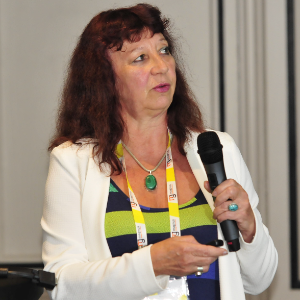Title : Telomerase in brain and the beneficial effects of telomerase activators on brain ageing and neurodegeneration
Abstract:
I will give an overview about the enzyme telomerase and the non-canonical functions of the protein part TERT (Telomerase reverse transcriptase) with an emphasis of its beneficial effect within mitochondria which has been mainly analysed in cultured cell models in vitro. I will then present the evidence of possible in vivo functions of TERT, focussing on brain and TERT’s persisting presence in adult brain, predominantly in neurons. Then I will demonstrate results about the role of TERT protein in neurodegenerative diseases such as Alzheimer’s disease (AD) and Parkinson’s disease (PD). This includes published data on the possible protective role of the TERT protein in the hippocampus of AD brains, its mutual exclusion with tau protein as well as the experimental modelling of tau pathology using transduction of primary neurons with and without TERT protein expression (Spilsbury et al., 2015). In the second part I will show results on the mitochondrial TERT localisation in mouse brain mitochondria under conditions of dietary restriction and rapamycin treatment from a recently published study (Miwa et al., 2016). Finally, I will present our unpublished results on using 2 telomerase activators to boost TERT levels in the brains of old wild type mice and on a mouse model of PD where we performed various behaviour tests, analysed brain pathology and gene expression as well as mitochondrial generation of oxidative stress. Our results show that telomerase activators are able to counteract diminished brain function such as cognition, balance and motor skills during ageing and neurodegeneration. Thus, telomerase activators might form novel treatment options for neurodegenerative diseases such as PD and AD
Audience Take Away:
• The knowledge about a role of the telomerase/TERT protein in the brain is rather new and not widely disseminated in the field of brain research. Thus, the scientists and clinicians from various fields of brain research will get an update about this rather young field of research with a potential application to their own research field.




